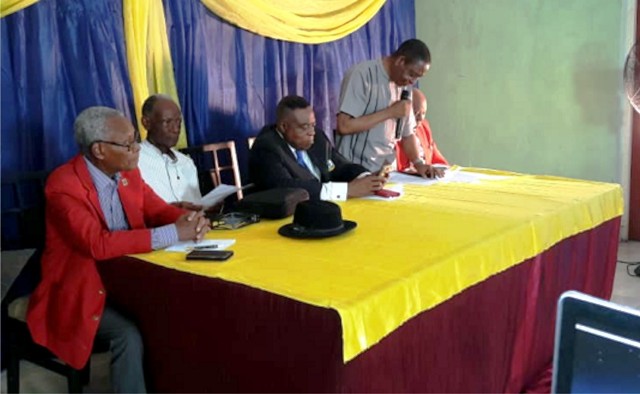Niger Delta
CRSG Commences Construction Of Poultry, Livestock Farm

In a bid to complement the multi-billion naira frozen chicken processing factory, Calachika, Cross River State Governor, Prof Ben Ayade has commenced the construction of the poultry and livestock farm. When completed, the factory is projected to process about 6,000 frozen chicken per hour.
Located along the Calabar/Odukpani Road in Odukpani Local Government Area, the poultry and livestock farm is conceived to be the biggest of its kind in the South South with the production capacity of 22 thousand birds per hour.
It is expected to roll out its first birds by the end of the second quarter of 2019.
Briefing news men at the site during his unscheduled visit, the state Governor Ayade disclosed details of the project: “We have six broiler houses, layers and of course the hatchery. So, we would be producing
22 thousand birds per broiler house with massive production of eggs. My ambition is to commission it soon.”
According to Ayade, “Already, we have a team of engineers from China and Spain where we purchased the equipment from. They are on ground to perform the installations here on site once the civil works is completed.”
Ayade who described the poultry farm as the most sophisticated in terms of equipment and production line in Africa, further stated: “In the whole of South-South Nigeria, there is no commercial, massive and industrial scale poultry business, yet protein is the core most important part of hospitality industry.”
Offering more insights on the value chain of the projects, the governor explained: “Indeed, you have three major downstream benefits from this business; eggs in abundance, day old chicks and frozen chickens and that is what we are doing to industrialize the state.
“All the small poultry farmers in Cross River State and its environ can now start buying their day old chicks from our facility instead of going far west as the case is currently.”
Continuing, he said: “We also have a slaughter house at the Ayade Industrial park where we are going to slaughter six thousand birds per hour for export.
That is why it is located close to the Bakassi Deep seaport. So, as we produce, we blast fridge and then take them to the cold room before exporting them as fresh chickens from natural yellow maize and soya beans.”
As a proactive measure to sustain the poultry farm, Ayade further disclosed that the state has started massive cultivation of soya beans and yellow maize in the northern part of the state to add as our feed inputs.
He urged the citizenry to start cultivation of yellow maize and soya beans as the factory will be requiring them in large quantity to meet up its daily productions capacity as what the state currently cultivates will not be enough.
Friday Nwagbara, Calabar
Niger Delta
NPC Unveils Digital Registration System In Delta

Niger Delta
Police Uncover Suspects’ Armoury … Recover Weapons In Delta

Niger Delta
Police Caution On Lawless Protests On Court Matters In A’Ibom

-
Maritime5 days ago
Nigeria To Pilot Regional Fishing Vessels Register In Gulf Of Guinea —Oyetola
-

 Sports5 days ago
Sports5 days agoGombe-Gara Rejects Chelle $130,000 monthly salary
-
Maritime5 days ago
Customs Declares War Against Narcotics Baron At Idiroko Border
-

 Sports5 days ago
Sports5 days agoTEAM RIVERS SET TO WIN 4×400 ” MORROW” …Wins Triple jump Silver
-

 Sports5 days ago
Sports5 days agoNPFL Drops To 91st In Global League Rankings
-
Maritime5 days ago
NIMASA,NAF Boost Unmanned Aerial Surveillance For Maritime Security
-

 Sports5 days ago
Sports5 days agoNIGER DELTA GAMES PANACEA TO YOUTH DEV”
-

 Sports5 days ago
Sports5 days agoNPFL Impose Fines On Kwara United Over Fans Misconduct

